|
“The beginning of all effort is the recognition of what is.” -Romano Guardini, Learning the Virtues That Lead You to God, 1963 Professional athletes do many appearances while playing. We get paid to show up at fundraisers, youth camps, watch parties, and promotional events. Something that is practically a guarantee when attending these appearances is one or more sets of parents coming up to tell us about their child who plays soccer. Often these conversations are quite enjoyable, but almost inevitably, there are a few who want to talk about how their son or daughter was short-changed in their youth soccer experience. There is a lot that these parents say to us, but the consistent element is: my child didn’t succeed because of some external factor. This may very well be the case for some of them. It is equally true, however, that it is certainly not the case for all of them. Much of the time the boy or girl just wasn’t good enough for a particular team, level of competition, or system of play. The point of this post is not to drop the heavy hammer that many kids run out of the athletic ability rope and should give up. No, this post is about the absolute necessity of taking an honest stock of where someone actually is--especially for the spiritual life. Romano Gaurdini says that “the beginning of all effort is the recognition of what is.” The reason for this being that you cannot begin making the effort to improve unless you start with who you already are. Any professional athlete will tell you that it is far more helpful to be taught how to assess and address weaknesses rather than to pretend they don’t exist. In fact, most professional athletes are fairly obsessive about identifying areas in their game where they can improve. If I determine I’d like to be a better shooter with my right foot, for example, then I must begin with the harsh—but necessary—reality that I can barely complete a pass with my right foot. If I never acknowledge my current ability, I’ll constantly run into problems—poor technique, inadequate fundamentals, and so on. I’ll never become a strong shooter without addressing the plain truth of my current ability. This is a skill that requires disciplined practice and will never simply be acquired because I want it to be so. First comes acknowledgment, then a plan for improvement, all for the hope of becoming a good right-footed shooter. This same principle can and should be applied to our spiritual lives. Just as improvement can only take place in athletics by beginning with where an athlete currently is, spiritual advancement can only begin by taking an honest assessment of where one currently is in relation to God. This means you’re far better off admitting that you struggle to pray for 5 minutes and taking that to God than wondering when you’ll receive the Stigmata. It is far more helpful to search deep within yourself and locate and name your pride, selfishness, ego, envy, or lust than only present to God your most pious and holy thoughts. He knows your heart already—He’s just waiting for you to know it as well. One of the most helpful exercises for high-school, collegiate, and professional athletes is to watch film in order to identify strengths and weaknesses. The team watches the most recent game in order to see what needs to be addressed that week in practice. This same concept can migrate into our spiritual lives—we look for points of departure and development in order to draw nearer to God. This practice is not to discourage but to improve. There’s no shame in acknowledging ourselves as we really are. In fact, God can really only begin to heal us once we acknowledge where we are hurt. The Physician cannot tend to our wounds unless we let Him see them. Several days ago, I was talking to my wife about this concept and she brought up how watching film for athletes is similar to the examination of conscience recommended by the Church. Examining one’s conscience on a regular basis is like looking back over the tape to see the strengths and the weaknesses—the graces and the sins—in order to grow. Then, with this self-knowledge, we can go to God, say thank you, and ask for forgiveness, trusting in His merciful love. God looks down on us and loves us as we are, but He also promises that His love is transformative. He looks down and says, “I love you,” while at the same time calling us higher. He wants us to identify what is so that we may cooperate with His grace and begin the beautiful work of improvement. This we call sanctification. May we all be willing to look at ourselves honestly—as we really are—so that we enter into the effort that is the fight of faith (cf Jude 3), trust that God’s grace is sufficient (see 2 Cor 12:9), and become the saints Jesus Christ died for us to be.
0 Comments
In the past few months, most of us have had to confront loss. Some of those losses have been very visible and salient, costing us our jobs, loved ones, and financial security. Others have been less tangible, and yet still impact large parts of our lives: important events have been placed on hold or canceled, relationships have been strained due to distance, and the feeling of having things to look forward to has dissipated. In the aftermath of stay-at-home orders and the pandemic, those of us with these less visible losses might find ourselves minimizing the pain or disappointment we feel. We might compare our smaller losses with those who have undoubtedly encountered more suffering than we have. We may feel that compared to others who have lost jobs, loved ones, homes, or security, we have no right to feel sadness, anger, or disappointment. We might even be preventing ourselves from experiencing grief. Grief is something natural to our human journey. Like other emotions and emotional processes that we experience as human beings, grief provides us with information to our minds and bodies so that we can survive. In the face of loss, grief serves the purpose of communicating to us that we have encountered a lack of something that was formerly present and available to us. Whether it is the loss of a loved one, job, role on a team or in a workforce, friendship, feeling of security, or a sense of hope, grief helps communicate to us what is most important in our lives. In other words, grief helps inform us regarding what we set our hearts on and what brings us joy and safety. Grief not only touches the realm of the emotions and the psyche; it also is essential to our faith tradition. In Scripture, the words of grief are especially echoed in the psalms: “My tears have been my bread day and night, as they ask me every day, “Where is your God?” Those times I recall as I pour out my soul, When I would cross over to the shrine of the Mighty One, to the house of God, Amid loud cries of thanksgiving, with the multitude keeping festival. Why are you downcast, my soul; why do you groan within me? Wait for God, for I shall again praise him, my savior and my God.” (Psalm 42: 4-6) We even see Jesus grieve several places in the Gospels, such as at the death of his friend Lazarus (John 11:35), and even at the suffering he was to experience to carry out our salvation (Luke 22:44). In Catholic funerals, we name and acknowledge the reality of grief in our prayers during our liturgical rites—an important part of believing in and living with Paschal hope. Grief is not just an emotional process for death or large losses. While it is important to keep a clear perspective about the magnitude of the losses we experience in comparison to the suffering of others, grieving the less tangible and visible losses we experience is an important step to healing and cultivating our mental and emotional health. Additionally, ensuring that we allow ourselves to experience grief, even in response to comparatively smaller losses, can help us grow in holiness. Experiencing grief can help us to find new meaning in our faith, deepen our relationship with God and others, and continue to grow in knowledge of ourselves before God. So, how are we to allow ourselves to grieve the smaller losses we have experienced in recent months? What are some ways to grieve the rescheduled or canceled graduations, weddings, and festivals, or the lack of opportunity to do the things we enjoy or to spend time with people whom we love? Emotional Processing vs. Emotional Bypassing Instead of dismissing ourselves or invalidating the emotions we are experiencing (also known as emotional bypassing), we can allow ourselves to grieve more fully by feeling our emotions and asking questions about what we feel, otherwise known as emotional processing. For example, instead of dismissing how we feel by thinking, “It could be worse!”, it is more helpful to our healing to ask questions such as “What is my sadness and anger telling me about what I love or what’s important to me?” In acknowledging our pain and asking ourselves questions about how we feel, we can grow in self-knowledge and self-understanding about the way in which God has created us. We can also engage in processing with a trusted friend, mentor, or mental health professional. Allowing Physical Release Grief, like other emotions and emotional processes, makes itself known in our bodies. Physical pain, muscle aches, clenched jaws, and a racing heartbeat can all be caused by grief, stress, and anxiety. It is important to process these emotions physically so that they do not remain stuck in our bodies. Breathwork, exercise, crying, and movement allows us to feel grief and allow it to process through our body. Journaling, since it requires movement of the hands, is also a helpful tool for engaging grief through our bodies. Authenticity in Prayer We are the beloved children of God; God looks upon us with love, care, and concern with whatever we bring to prayer. Talking to God honestly about our disappointment, sadness, or anger brings us closer in relationship with God. In prayer, God is not judging us for what we do or do not say. For this reason, we can be totally authentic with God in prayer. We might feel like we should have a different emotional response to our losses from what we are experiencing, but God’s love is unconditional and infinite: we don’t have to worry about appearing perfect before God. Grieving the large and small losses of the last few months is not only important, it is human. How can we enter more deeply into our grief to find healing? What in our lives do we need to grieve?
 This Easter season, I have been thinking a lot about my late brother Tim, who died in an accident seven years ago - at the age of 24 - while serving as an EMT in Indianapolis, IN. Tim’s death, along with the death of his IEMS partner Cody Medley, left all their friends and families at an inestimable loss. While I never got to meet Cody personally, I have learned that he was an exceptionally driven and talented young person who also served as a fire cadet before becoming a paramedic. Tim’s story is not much different; he was an Eagle Scout and volunteer EMS before going professional and passing his paramedic certification shortly before he died. In life, Tim achieved success in almost every field. As a teenager he won academic and musical scholarships and posted regular five-minute miles in outdoor and indoor track. He mastered Mandarin and spent an immersion summer in Shanghai. He participated in a service trip to Jamaica and volunteered back home as a “running buddy” alongside students with special needs in Central Park. These successes, paired with his later commitment to the medical profession, truly made him “A Man for Others” – the Jesuit motto of his alma mater, NYC’s Regis High School. Only looking backwards have I come to appreciate how brilliant Tim was. Perhaps you have a similar person in your family – someone who is so smart that they are intimidating. Tim was fearless in challenging others (especially those in authority) when he thought they were wrong. I have thought of him throughout this entire pandemic. As a first responder, I know that he would be helping wherever help was needed. As the outspoken person he was, I know he would have choice words for those he felt were ignoring public safety protocols. And most of all, as a cuttingly funny person, I know he would help me laugh during this time. Tim died three days into Lent, on February 16th, 2013. I have remembered him especially during every Lent and Easter since then. This past Lent was perhaps the most difficult yet. Many say that it takes seven years to heal from losing a loved one. The year 2020 marks seven years for all who loved Tim. To me, I felt healing – which also meant letting my guard down to feel fully the pangs of loss I couldn’t afford to feel in 2013. The coronavirus situation, if nothing else, has clarified the relationship between life and death. We are all vulnerable humans. This can be a scary thought, but also a freeing one. This can be a time to meditate on life as what it is – a short chance to grow, love, and serve others. We do not know how long the journey will last. I sometimes think that my brother attacked life the way he did because he might have sensed that he had less time than others. He used to wake me up after midnight, for instance, after I had already gone to bed, and say “Come on bro, get up, let’s make some memories.” At the time I thought he had a screw loose. Now I think he was prophetic. Recently in the Gospel readings, we hear Jesus tell the disciples, “Peace I leave with you; my peace I give to you. Not as the world gives do I give it to you. Do not let your hearts be troubled or afraid.” These words are a balm to all of us who have experienced loss, or who fear loss during these challenging times. As I read this passage, I am touched by the care and concern Jesus shows for his followers. He is also being quite honest with them and reminding them that they will lose him. The promise of peace is made realer by the reality of loss. This is what I receive from today and feel to be true in my own life. One year after Tim’s death, on Easter Sunday 2014, my family went to Mass in a church we had never been to before. The previous year had been difficult for everyone. Personally, I had not been taking care of myself mentally, physically, or spiritually. In the prior twelve months, I had not felt anything approaching peace. I was experiencing great fear and having awful panic attacks. That morning, sitting in the pews, waiting for Mass to begin, I suddenly noticed all sound around me fade out. I felt a sensation of all the breath leaving my body – and then my next breath was a slow, purposeful breath that was like drinking cool water in the desert. I was able to begin breathing in a deep and rhythmic way. Over the next few minutes, I felt as if warm light was streaming over me, from the head down. It was a feeling of complete release and relief. Ever since, I’ve been hoping to feel that peace again. Like my brother, I doubted (and still doubt) aspects of my faith. Tim wrestled to understand people who believe that faith and the intellectual life are incompatible. Being the true original that he was, I think he found it difficult at times to imagine a place in Christianity where he fit in. Yet after his death, I learned that some of Tim’s recent writings and reflections expressed the faith of a mature man who trusted in a loving God. I reflect on his words often as I remember my “kid brother” - who responded to numerous life-or-death situations and treated severe injuries which I would be terrified to walk into. Like everything else, Tim’s faith journey happened at a rate and intensity that most of us will never know. As Easter moves on and we navigate the new normal that is COVID-19, my spiritual suggestion (for what it’s worth) is this: In your prayers, dreams, and doings, try to let fear and hope co-exist. I will try to do the same. If we can hold those two seemingly irreconcilable opposites, we may find that peace can sprout like a flower right in between our hands. The Gospel reading for the Fifth Sunday of Lent is the familiar passage of the adulterous woman and her accusers. For as long as I can remember, this story has been bittersweet: it involves targeted harassment and shame, but also redemption and conversion. At this point in Lent, I don’t think there is a more needed, or relatable, lesson for us to be reminded of and to work on accepting. So, we’re five weeks into our Lenten journey. We’ve been skipping meat on Fridays and trying to live without whatever convenience or vice we decided to give up or purge from ourselves. Maybe we’re praying a little more than we normally would or are setting aside a few minutes to read a daily reflection from those little black books left in the back of our churches. But even with all of these intentional and humbling acts and motivations, we often still feel unworthy or like we’re faltering. Because of this, it’s possible to say that we don’t even need the Pharisees to judge us and bring us for judgement before God – we’re doing it enough for ourselves. To overcome this, I want us to reflect on three things: personal attitude, an open heart, and recognizing what’s in front of us. I think sometimes we’re too hard on ourselves. We allow our own harsh judgements to replace the only one that truly matters: God’s. Our own personal attitude can prevent us from accepting and sharing in the love and grace of God if we constantly feel that we are unworthy or failing. In the Gospel, when the adulterous woman is brought before Jesus, it does not say that she cried or tried to run. In the Gospel account, she lays at the feet of Jesus, lets Him clear her name and, ultimately, lets Him forgive her sins. Here’s a secret I’ve learned that the Gospel has been trying to tell us for a few thousand years now: Man is never worthy on his own, but has been made so by Christ, who offers redemption to all. If man were worthy, Christ would not have needed to redeem us after the Fall. So, we need to stop allowing our own negative perception of our efforts to prevent us from bearing or receiving the fruits of God’s grace and forgiveness. Why was Jesus’ reaction effective with the woman? Christ did not condone her sin, but met the woman in her sinful situation with love and mercy. Surely, such a transformation is not possible without a profound encounter with God’s mercy, an openness to change, and conversion of heart. The adulterous woman of this week’s Gospel is told by Jesus to “Go, and from now on do not sin any more” (John 8:11). As a result of her encounter with Jesus, her heart was changed, and she spent the rest of her life trying to grow closer to Him. We are called to do the same – during the Lenten season or any other time. If we are open to the love of God, it will fill us and strengthen us in our actions. With a faithful attitude and a heart that is open to change, all that is left is for us to encounter God. In order to do this, we must recognize what is in front of us. In the challenges, relationships, beauty of nature, art, and moments of prayer, God is entirely present and inviting us to share in it with Him. What a beautiful gift, and how accessible and truly joyful this is for us! I want to suggest that each of us take a few moments each day this week to reflect on how we’ve gone out of ourselves to be with or grow closer to God. Instead of grumbling about how much we miss Netflix or those amazing chocolate caramels, be proud of yourself for being so committed to your solidarity with Christ and His own suffering. Or, if you tripped up, instead of getting frustrated with yourself, reflect on the three Stations of the Cross in which Jesus falls. Absolute perfection is never what God expects or even desires – He’s just pleased to recognize a desire in us to do better. For more resources to accompany you along your Lenten journey, please click here. Question for Reflection: How can you grow closer to God in the final days of the Lenten season? The next forty days of Lent are Mother Church’s annual call to intense prayer, fasting, and almsgiving oriented towards embracing God as the center of one’s life and repenting of all which distracts us from Him. With the current crisis for the Church in the United States, it seems that the Church could really use a good spiritual renewal, cleansing, and renunciation of sin often focused on during the season of Lent. As parts of the Body of Christ[1], we are all too aware how an affliction experienced (or caused) by one part affects us all. Recall the words of St. Paul, “Rejoice with those who rejoice, weep with those who weep... Do not be conquered by evil but conquer evil with good.”[2] The Church is suffering but, just as she always has, she will ultimately be restored for the glory of God. As laity, you and I are key to addressing this scourge, along with the Church’s holy clergy and religious, and to affirming God’s presence in our lives not just in the Lenten season, but every day.
Though a time of repentance, Lent is not a time of despair or hopeless suffering; this season reminds us that God, although saddened by our repeated failings, never closes Himself off from offering mercy and love to the broken, the sinner, and the lost. Lent is not a diet, nor a fad of living without something trivial, nor even a temporary spiritual renewal; it must take root—free from the sin which prevents this—and be nourished over the coming weeks to strengthen us throughout the whole year. Above all, Lent prepares us for the celebration of Easter. Christ has died, Christ is risen, Christ will come again; the Church suffers, the Church is renewed, the Church shall be restored! The abuse scandal today may cause people to feel abandoned, angry, confused, and sad. “How can this be happening?” is certainly a question in our hearts and homes these days. It is important to remember that Jesus Christ, the same “yesterday, today, and forever,”[3] reigns over the Church. He is omnipotent, divinely good, and eternal; Let us take courage in the truth that our faith is ultimately in Jesus Christ. Because our Lord remains faithful to us[4] and ever close to His bride, the Church, He gives us the strength to recommit ourselves to renouncing the evil in our sight that threatens to drive us away from God and His Church. Lent is the perfect opportunity to facilitate spiritual renewal, not only for ourselves but also for the greater Church. Following the example of Jesus’ time in the desert before commencing His public ministry, the faithful are invited to reflect on the state of the Church, pray for strength, courage, justice, and healing, and even seek accountability in the governance of the Church. Personal penance can be made for our own failings, but reparation must also be made to address this scandal and to unify God’s people to prayerful and peaceful action in seeking God’s healing grace to move forward. Over the next 40 days, let us care for the Church by promoting healing among ourselves, supporting the afflicted and needy, addressing sin and divisions, and always proclaiming Christ to each other and the world. For more resources to accompany you throughout the Lenten season, please click here. [1] cf. Lumen Gentium, 33. [2] Romans 12:15, 21. [3] Hebrews 13:8. [4] cf. 2 Timothy 2:13. My Catholic grade school began everyday with students lining up in the gym for attendance and then filing out to class. One morning after Thanksgiving break, our usual routine was interrupted when the principal, a Sister of St. Joseph, came up to me.
She asked, “Would you like to be Mary for an Advent Mass?” I immediately blurted out an emphatic, “No!” The other fourth graders shot me shocked stares. It would have been a dream for many of my classmates to receive such an invitation, especially a personal one from the principal! And then, of course, they were astounded that I would dare to say no to the principal herself. “Are you sure?” she asked me again. “Well, umm, I just really don’t want to. I’m sorry,” I said. The disappointment spread across her face and I knew then that she was not expecting that answer either. An awkward pause came and went as teachers and students began marching to their rooms. Finally, I said, “Well, I mean, I guess I could do that for you.” The principal beamed and listed off a number of details, like who would be St. Joseph, and when we were to arrive to change into costume. I often think back to that encounter during Advent when I reflect on Mary’s “yes” and Joseph’s sacrifice. Why did I refuse to help with such certainty? It was out of character for my usual fourth grade self.. Maybe that day my stubborn will and insecurities showed their true colors! There is an irony to saying “no” to playing the part of Mary when her “yes” was prophesied by Isaiah and echoed in the message of the psalmists. The lives of St. Joseph, St. Paul, and the gospel writers were forever changed by that answer. Now, I’m grateful for changing my answer to yes for something simple. Like Mary, I received special graces to live out the big and small yeses to God in my adult life. The readings for this Fourth Sunday of Advent focus on the message of Emmanuel.They do a good job of showing how even in our wavering human nature, God is with us. Consider the gospel from this week, where a shocked St. Joseph allows God to turn his “no” to a “yes.” I like to imagine St. Joseph’s shock after hearing about Mary’s pregnancy. He responds to the news with a dignified “no,” hoping to protect both himself and his young fiancee, until an Angel shows him the workings of the Holy Spirit in his and Mary’s lives. His sacrifice and hiddenness guides us in family life, work, ministry, and sharing the the gospel message in a noisy world. His “yes” wavered and then seemed to move to a place of confidence and trust. “Joseph, son of David, do not be afraid to take Mary your wife into your home.” (Mt 1:20) What reassurance! God was with him as he transitioned to being the head of the Holy Family, he became the ultimate protector of holiness. After the Marian story from my fourth grade year to the touch points of this weekend’s Gospel the message of Emmanuel lives. We prepare for Christmas this week with the demands of a commercial culture, family time, the healing of relationships, and the stress of “keeping up”. God is with us, waiting as he did through Isaiah and St. Paul, and the call of St. Joseph. What will we say “yes” to this week? How will God be with us in our moments of “no.”? When your fear or pride brings the word “no” to your lips, remember that God is still with you. As we await our Lord this Advent remember that he too awaits us and our emphatic “yes”. May your final week of Advent be blessed! Sophie Lorenzo works in social media marketing for a Catholic publisher in Chicago. An alum of the Echo Program at the University of Notre Dame, she enjoys bridging her background in theology with online ministry. A few Sundays ago, our parish priest mentioned a phrase in his homily that stuck with me for several days. He said, “The most important person in the world is the one who is in front of you right now.” I think this is a phrase St. Vincent de Paul would live by if he were among us today. St. Vincent de Paul is well known for his service to the lowliest members of society. He was a French Catholic priest who dedicated his priestly career to the community outreach and evangelization of the poor by founding the Congregation of the Mission. Through his example, St. Vincent de Paul teaches us to see Christ in the poor and suffering, helping us to live out Jesus’ calling, “Whatever you did for one of these least brothers of mine, you did for me” (Matthew 25:40). St. Vincent de Paul said, “The poor have much to teach you. You have much to learn from them.” As we speak and listen to the poor, we come to know God better and are humbled by the circumstances of others. By extending a helpful hand or lending an ear to the less fortunate, we show God’s love and acceptance of all. There are many ways we can demonstrate this love and acceptance. Consider one of the following:
This last point is an important one. Although we may not encounter the financially poor every day, we do face people daily who may be poor in their spirituality, relationships, knowledge, and other ways. By making an effort to lend a listening ear or helping hand to coworkers, friends, family, people in the grocery store, those walking to work or traveling on the subway in addition to the homeless begging on the streets, we can help to achieve the work of God on earth a little bit day by day. I recently came across a picture quote that read, “It’s worth the trouble to become the person you were meant to be.” I was instantly reminded that God has an individual plan for me, just as he does for everyone else. God utilizes us to do his good work in our communities, striving to serve both those who lack financial resources or are poor or dejected in spirit. St. Vincent de Paul said to his priests, “Do the good that presents itself to be done…God lets us know he wants of us. We belong to him and not to ourselves. If he increases our work, he adds to our strength.” We must be open to the good work God wants to accomplish through us. To do this, we must continue our daily prayer, pay attention to opportunities where God is calling us to serve, and keep an optimistic heart. St. Vincent de Paul, pray for us! |
Details
Archives
July 2024
Categories
All
|
About |
Media |
© COPYRIGHT 2024 | ALL RIGHTS RESERVED



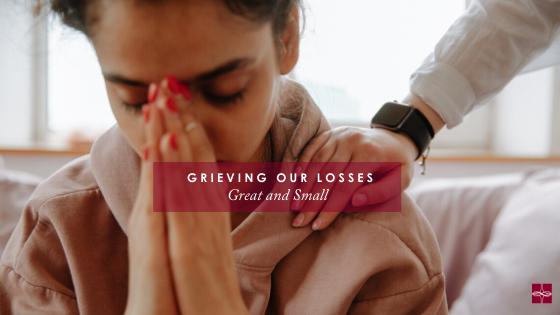
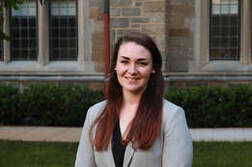


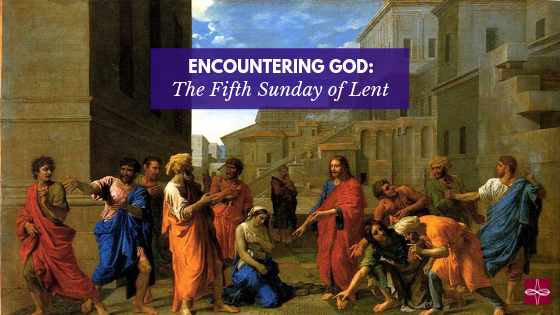
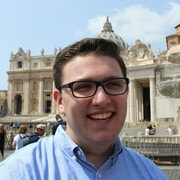
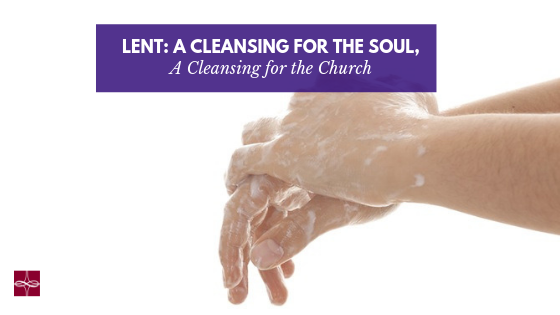

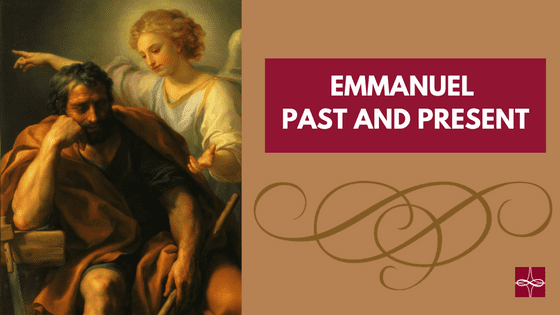
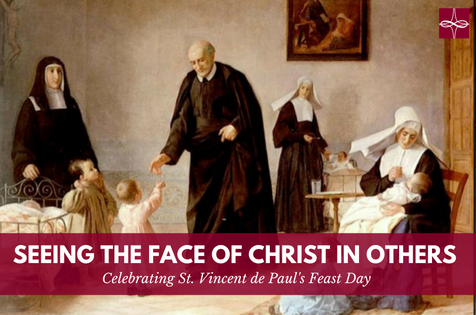

 RSS Feed
RSS Feed